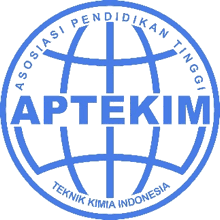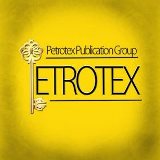Potential of Energy Municipal Solid Waste (MSW) to Become Refuse Derived Fuel (RDF) in Bali Province, Indonesia
Abstract
The generation of municipal solid waste (MSW) in Bali has various environmental impacts. One of the updates on sustainable waste processing is the RDF treatment plant processing. Before carrying out the processing, MSW characterization is needed because each region has a diverse composition. The processing of MSW into RDF provides benefits for achieving MSW reduction targets, renewable energy use, and the reduction of greenhouse gas (GHG) emissions. For this reason, this study was conducted to determine the potential of MSW in Bali as an alternative to renewable fuel and its potential to reduce GHG. MSW's potential calorific value as a raw material for RDF in Bali can reach 9.58 - 17.71 MJ/kg. The implementation of processing waste into RDF in pellets has shown a calorific value of ± 3904 - 4945 kkcal/kg. Implementing MSW processing into RDF in Bali can reduce GHG by 178 - 330 times compared to open dumping.
Keywords
Full Text:
PDFReferences
Anasstasia, T. T., Lestianingrum, E., Cahyono, R. B., Azis, M. M. 2020. Life Cycle Assessment of Refuse Derived Fuel (RDF) for Municipal Solid Waste (MSW) Management: Case Study Area Around Cement Industry, Cirebon, Indonesia. IOP Conference Series: Materials Science and Engineering. 778(1): 012146
Borowski, G., Hycnar, J. J. 2013. Utilization of fine coal waste as a fuel briquettes. International Journal of Coal Preparation and Utilization. 33(4): 194-204.
Borowski, G., Stępniewski, W., Wójcik-Oliveira, K. 2017. Effect of starch binder on charcoal briquette properties. International Agrophysics. 31(4): 571.
Chakma, S., Mathur, S. 2007. Settlement of MSW landfills due to biodegradation. Proceedings of the International Conference on Sustainable Solid Waste Management. 234-238.
Cheremisinoff, N. P. 2003. Handbook of solid waste management and waste minimization technologies. Butterworth-Heinemann.
DEFRA, 2007. Department for Environment, Food and Rural Affairs. Incineration of municipal solid waste, waste management technology brief, the new technologies work stream of the Defra Waste Implementation Programme,
Dianda, P., Munawar, E. 2018. Production and characterization refuse derived fuel (RDF) from high organic and moisture contents of municipal solid waste (MSW). IOP Conference Series: Materials Science and Engineering. 334(1): 012035.
Gendebien, A. 2003. Refuse derived fuel, current practice and perspectives. WRc Ref: CO5087-4.
Google Map, 2020. [Online]. Available: https://www.google.com/maps/@-8.4318525,115.1198684,9.75z?hl=id. [Accessed 07 10 2020].
Gunamantha, M. 2010. Life Cycle Assessment Pada Sistem Pengelolaan Sampah Di Wilayah Sarbagita, Bali. Jurnal Purifikasi. 11(1): 41-52.
Kementerian Lingkungan Hidup dan Kehutanan Republik Indonesia, “Sistem Informasi Pengelolaan Sampah Nasional Diakses melalui sipsn.menlhk.go.id,” 2020. [Online]. Available: http://sipsn.menlhk.go.id/?q=3a-komposisi-sampah. [Accessed 06 10 2020].
Legino, S., Hidayawanti, R., Wirantika, I. 2019. Waste as fastest cycle of renewable energy sources through TOSS Model. Journal of Physics: Conference Series. 1282(1): 012041.
Legino, S., Hidayawanti, R., Putra, I. S., Pribadi, A. 2019. Reducing coal consumption by people empowerment using local waste processing unit. Journal of Physics: Conference Series. 1217(1): 012028).
Maheshi, D. 2015. Environmental and economic assessment of ‘open waste dump’mining in Sri Lanka. Resources, Conservation and Recycling. 102: 67-79.
Paramita, W., Hartono, D. M., Soesilo, T. E. B. 2018. Sustainability of Refuse Derived Fuel Potential from Municipal Solid Waste for Cement’s Alternative Fuel in Indonesia (A Case at Jeruklegi Landfill, in Cilacap). IOP Conference Series: Earth and Environmental Science. 159(1): 012027.
Peraturan Pemerintah Indonesia, PP No. 79 Tahun 2014 tentang Kebijakan Energi Nasional, Jakarta: Peraturan Pemerintah Indonesia, 2014.
Rafiq, A., Rasheed, A., Arslan, C., Tallat, U., Siddique, M. 2018. Estimation of greenhouse gas emissions from Muhammad wala open dumping site of Faisalabad, Pakistan. Geology, Ecology, and Landscapes. 2(1): 45-50.
Samosir, A. P. 2019. Analisis Pemanfaatan Refuse Derived Fuel Sebagai Sumber Bahan Bakar Alternatif, Bogor: Penerbit IPB Press.
Suryawan, I. W. K., Rahman, A., Septiariva, I. Y., Suhardono, S., Wijaya, I. M. W. 2021. Life Cycle Assessment of Solid Waste Generation During and Before Pandemic of Covid-19 In Bali Province. Journal of Sustainability Science and Management. 16(1): 11-21.
Tchobanoglous, G., Theisen, H., Vigil, S. 1993. Integrated solid waste management: Engineering principles and management lssues. McGraw-Hill.
Triyono, B., Prawisudha, P., Mardiyati, M., Pasek, A. D. 2018. Experimental Study on Utilization of Indonesian Non-Recycled Organic Waste as Renewable Solid Fuel Using Wet Torrefaction Process. Engineering Journal. 22(6): 81-92.
Yun, S. K. 2007. Development of GHG emission factors for alternative fuels with assessment of emission reduction in cement industry. Graduate student good articles for United Nations Framework Convention on Climate Change, the Korea Energy Management Corporation. 42-43.
Zaman, A. U. 2010. Comparative study of municipal solid waste treatment technologies using life cycle assessment method. International Journal of Environmental Science & Technology. 7(2): 225-234.
Refbacks
- There are currently no refbacks.




